Coronavirus has shown that market gardening won’t survive without migrant labour
The pandemic has changed the way we think about food and the way it is grown, picked, and where it comes from. Jon Bloomfield asks what lasting impact this will have on British agriculture

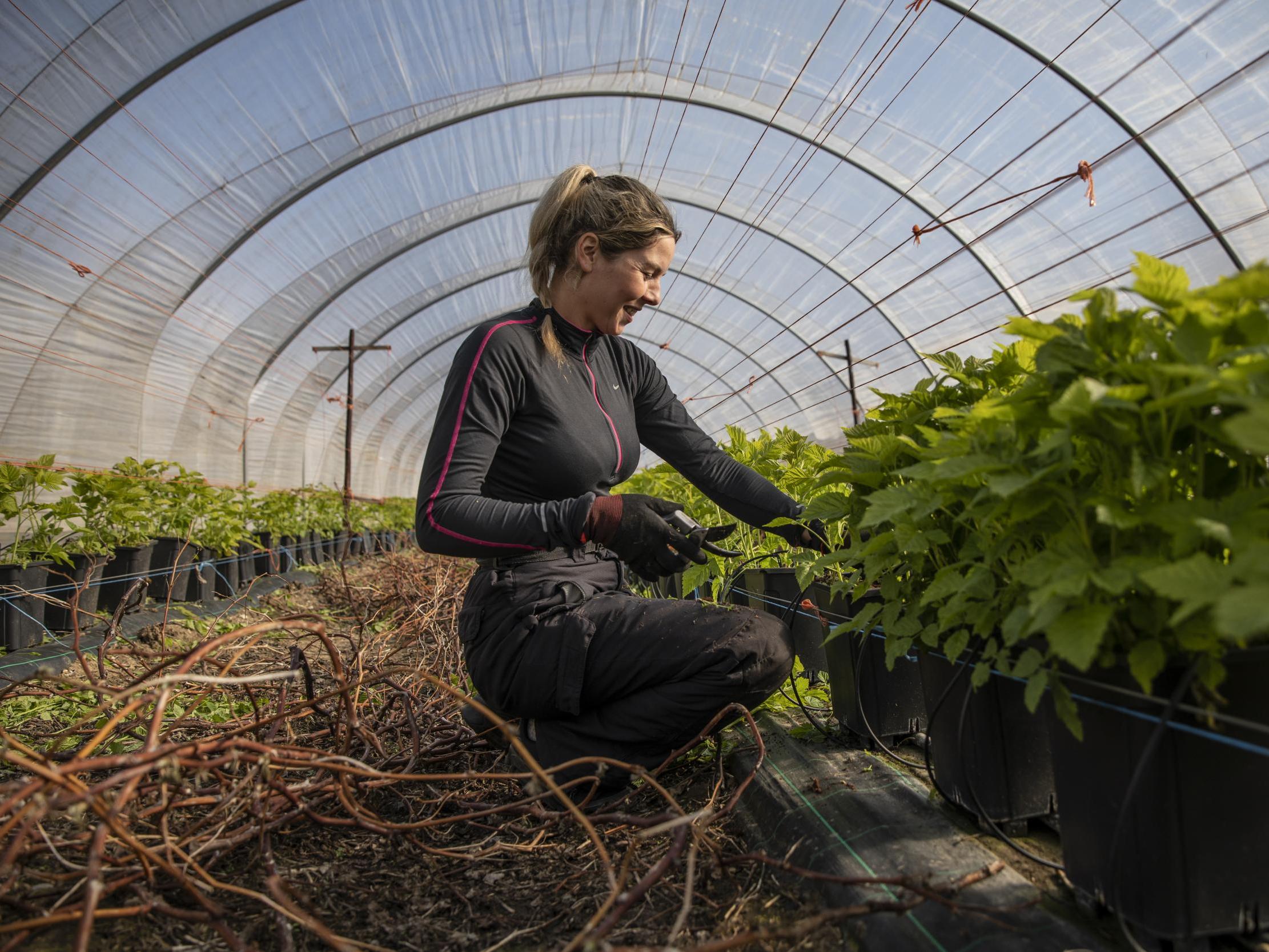
Martin and Maria took the Whizz Air flight from Sofia to Luton and then made their way to the smallholding in Evesham. Martin has been coming to England for seasonal work for a few years but it’s the first time for his girlfriend. There’s little work for him in his home town “and over here I can earn at least double what I can get in Bulgaria”. They work for eight hours a day, usually six days a week, picking the fruit and vegetables and then packing them up for sale. It’s hard work but he is a fit 30-year-old and says: “Yes, of course I like it.” It’s a bit different this year with Covid since apart from his girlfriend he’s not meeting anyone else other than those on the smallholding. “I’d like to come back next year but with Brexit I don’t know. Maybe I’ll need a visa.”
Martin works for Roger on the Styan family farm. Roger has been in the Vale of Evesham for nearly four decades. He grows a lot of veg all the year round, with tomatoes in the greenhouse. For fruit, he has strawberries, currants and cherries in the early summer before the plums – his main crop – arrive in August. The bulk of his vegetables he sells directly through the 40 local farmers’ markets that his business attends every month in a 50-mile radius around Evesham. Most market gardeners have a few crops that they grow on a large scale. Roger grows a lot of crops on a small scale. That works very well for him. But like most farmers he relies on migrant labour.
Roger has used seasonal labour for the past three decades but it has changed over that time. In 1982 it was either local people or travellers, with little in the way of foreign labour. Then for a while there were Asians bussed in from Birmingham. After 2000 he began to get more Eastern Europeans, who are now the dominant source of labour on the Vale. Roger normally uses four Bulgarians for six months of the year supplemented by three or four regular part-time workers who are local. For the East Europeans he provides accommodation on site. This year he has had to box and cox. Two of his sons and their girlfriends have come back to help, the first furloughed from work, the other back from university. Two 17-year-olds whose A-Levels were cancelled have mucked in too.
It’s a similar picture with other small producers. Martin Harrell runs Hayles Farm where the main picking season is from August to October with its apples, pears and nuts, but the farm also grows strawberries and other soft fruit earlier in the season. A group of Czechs usually form the core of Martin’s workforce but this year they were back home skiing when the lockdown came and were stranded.
“They’ll come back if they can for the main harvesting season.” In the meantime, following hundreds of calls and emails during April, Martin took on three people who had been furloughed along with some staff transferred from the farm shop. For the main apple harvest Martin hopes to use some students, people made redundant from other jobs as well as several Poles who usually come over.
Down in Kent, Steve Kember is a partner with his younger brother Chris and daughter Suzie who run Lower Ladysden farm with 50 acres of asparagus, soft fruit and vegetables and a dedicated farm shop. “We’ve used the same Romanian guys for the past seven years. They usually stay for five months. This year we got them over earlier. We could see what was happening so we told them to get here for mid-March and then we isolated them for 14 days.”
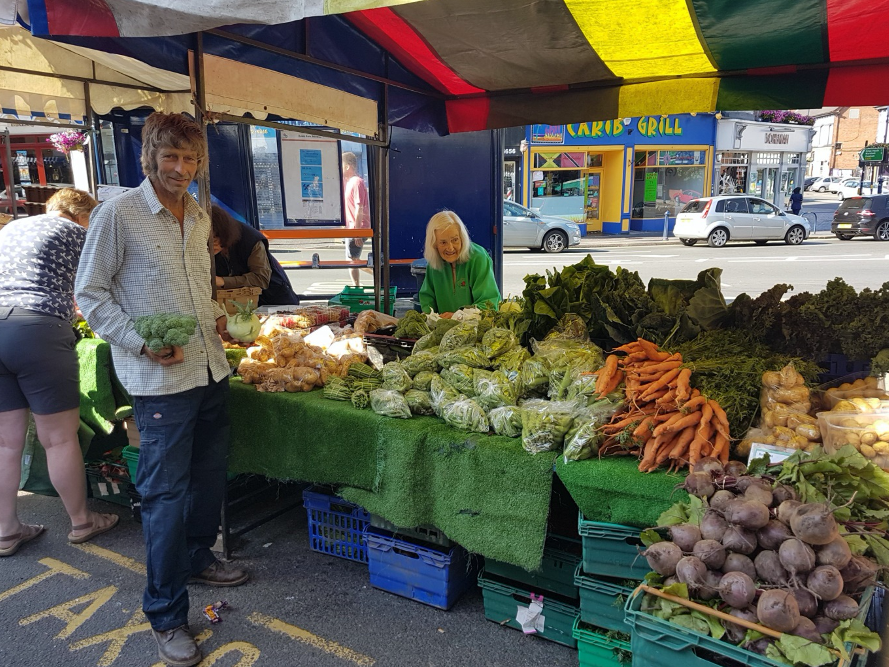
It’s been a similar story for the big producers too. For more than three decades Christine Snell and her husband have farmed in the rolling Herefordshire countryside. The farm covers 450 acres, producing high quality fresh berries for the premier supermarket lines; a large proportion of blackcurrants are grown for the producers of Ribena; while an onsite sorting line produce quality individually quick frozen blackcurrants for various outlets. This large operation relies on seasonal migrant labour. The bulk come from Bulgaria and Romania, with about 40 per cent returnees from previous years. This year it’s been tricky. “We had some here before lockdown but other staff we brought over ahead of schedule. Many came in April and we paid for them for the 14 days they had to be in quarantine,” says Christine.
To make up the shortfall the farm is employing local UK staff. “Normally we never get locals but we were inundated with applications. I was selective in who I chose. It’s been a buyer’s market. And I’ve been surprised. We’ve had some really excellent performers.” Christine has taken on people who have been furloughed, along with students sent home from university. “People have to travel up to 45 minutes to get here, often for five in the morning to begin picking. Previously, people thought it wasn’t cool or trendy to work here but some are liking it.” When we speak, she reckons that approaching 20 per cent of this season’s staff are British locals.
The farms have managed pretty well but it has been difficult. They managed to get them over earlier than usual and to isolate them for two weeks
David Shepherd, the sales director at Evesham Vale Growers (EVG), has been less fortunate. EVG is a big producer of tomatoes – using renewable energy in its greenhouses – and spring onions. Of their 650 staff, 630 are non-UK, primarily from Eastern Europe. Those working in the greenhouses are permanent, growing tomatoes from March to December. Most have been with the company for years and have got settled status. But the spring onion pickers are seasonal, mainly from Bulgaria.
“It’s been hard for them this year,” says David. “Some managed to get flights, others came all the way by car. But it’s important for them. Here they can earn four times or more an hour than at home. They come from rural areas, they know what to expect. They pull onions and then go home.” When their arrival was uncertain EVG took on locals who had been furloughed, giving them protective clothing and some basic training. “Over the period we took on 60 people. In the majority of cases they didn’t last one day. No one came back by day three.” he tells me matter-of-factly.
The big fruit farms down in Kent growing strawberries, raspberries and other soft fruit for the major supermarkets also rely on overseas labour. Steve works as an agronomist advising several of them. Normally, almost all of them are foreign, mainly from Bulgaria and Romania, some from Poland, with a high number returning each year. “The farms have managed pretty well but it has been difficult. They managed to get them over earlier than usual and to isolate them for two weeks. The big farms have made efforts to recruit locally. There was a huge surge in demand but maybe around 10 per cent is local labour this year.”
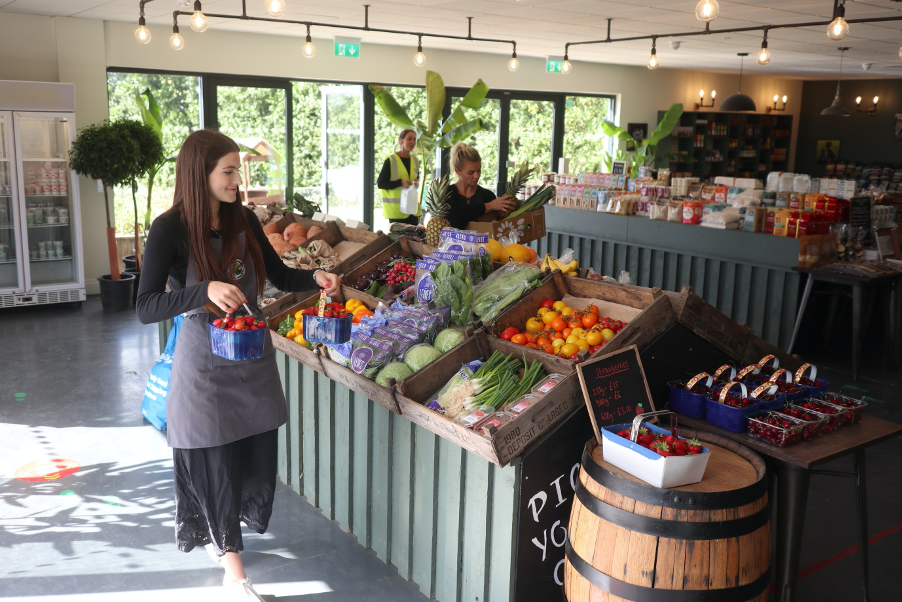
A report published in June by Andersons and jointly funded by the National Farmers’ Union, British Apples and Pears and the British Summer Fruits and British Growers Association confirms this general picture. Its author, John Pelham reports that some large growers have been able to keep their normal labour supply but others have had fewer returnees and have had to recruit new staff from either the UK or other parts of Europe.
Loads of expressions of interest came into farmers from furloughed workers when the various Pick for Britain schemes were announced or growers put out a call on their web-sites. “But when it got down to the detail, logistics like transport and distance meant that it often didn’t happen.” According to his report, quite a significant proportion of this year’s new entrants have come from Eastern Europe despite the travel problems. Even at a time of lockdown, British fruit and veg growers remain dependent on East European labour.
Even during lockdown, British fruit and veg growers remained dependent on East European labour
One noticeable feature of the Covid crisis is the way it has changed the small producers’ relationship with the shopping public, in particular through the acceleration of different types of on-line shopping and an expansion of the role of the farm shop.
The Lower Ladysden farm shop has bloomed during the lockdown. It invested in all the social distancing measures, sanitiser and wipes and employed extra store staff. People used the shop more. Steve says: “I found from talking to customers that they wanted to know more about the source of the food. There’s a real interest in local produce.”
The farm shop got a web designer to set up an online ordering system for fruit and veg boxes. People indicated and paid for their order which they could then either ask to be delivered or were given an allocated pick-up time from the shop. At the peak of the pandemic the shop had 150 orders a week. It put the farm shop on the map. Now they are seeing a doubling of their shop sales helped by a surge in their Pick-Your-Own fruit customers, as people want to get outside and do something active.
The family has plans for expansion. For quite a few farm shops, pick-your-own sites and small producers, the lockdown has created new possibilities. “We cut out the middleman,” says Steve. “It’s worked well for many of us. We’re looking to extend our range of crops to potatoes and runner beans, using all our 50 acres rather than leaving some fields for hay. That way we’ll meet the demand and interest in more local produce and sell a wider range of fruit and veg. I’m very buoyant about the future.”
The pressure is on our margins from the major supermarkets, the same as with the milk producers. If people want decent standards for workers, if they want ethical standards, then they have to pay for it
Katie Napper tells a similar story. She runs a medium-sized farm shop with nearly 30 staff near Abingdon in Oxfordshire. She primarily stocks produce that has been grown, reared or made locally, including fruit from her own orchards and meat from the farm just a couple of miles away. During the Covid crisis, trade was “completely bonkers”. They stayed open throughout; set up an email ordering system for collection in the shop car park; and had a boom in walk-in customers both at the shop and with pick-your-own fruit. The staff has been run off its feet but Katie thinks there is scope to expand the shop’s activities once the immediate crisis subsides. “There’s a lot of interest among people in buying local produce and supporting local businesses.”
Where Katie sells most of her fruit via her shop and farmers’ markets, Martin previously sold just 10 per cent in-house. But with the crisis he set up a delivery service. “Our elder customers asked us to deliver; we linked up with other shops nearby; and broadened beyond food. The first week was chaos but we sorted it out and it has been hugely successful.” It’s increased the shop’s profile and in future he is looking to sell at least 25 per cent of his produce direct either through the shop or via deliveries.
It was harder for Roger as he has no shop and relied heavily on farmers’ markets which all closed. He had to transform the business fast, which he managed with the technical expertise of his sons. They set up a web-site as an on-line shop; linked up with other local producers in the Vale so he had a wider range of food to offer; built on his base of regular market customers; and then began to deliver to farm shops, bakeries and other outlets. At its peak he was getting 500 orders a week. These experiences shows that IT applications and web-sites can change social and shopping behaviour and give a renewed impetus to local shops and home delivery. As Roger says: “The platform is up and running; it’s very convenient for customers. I’m hoping it will continue.”
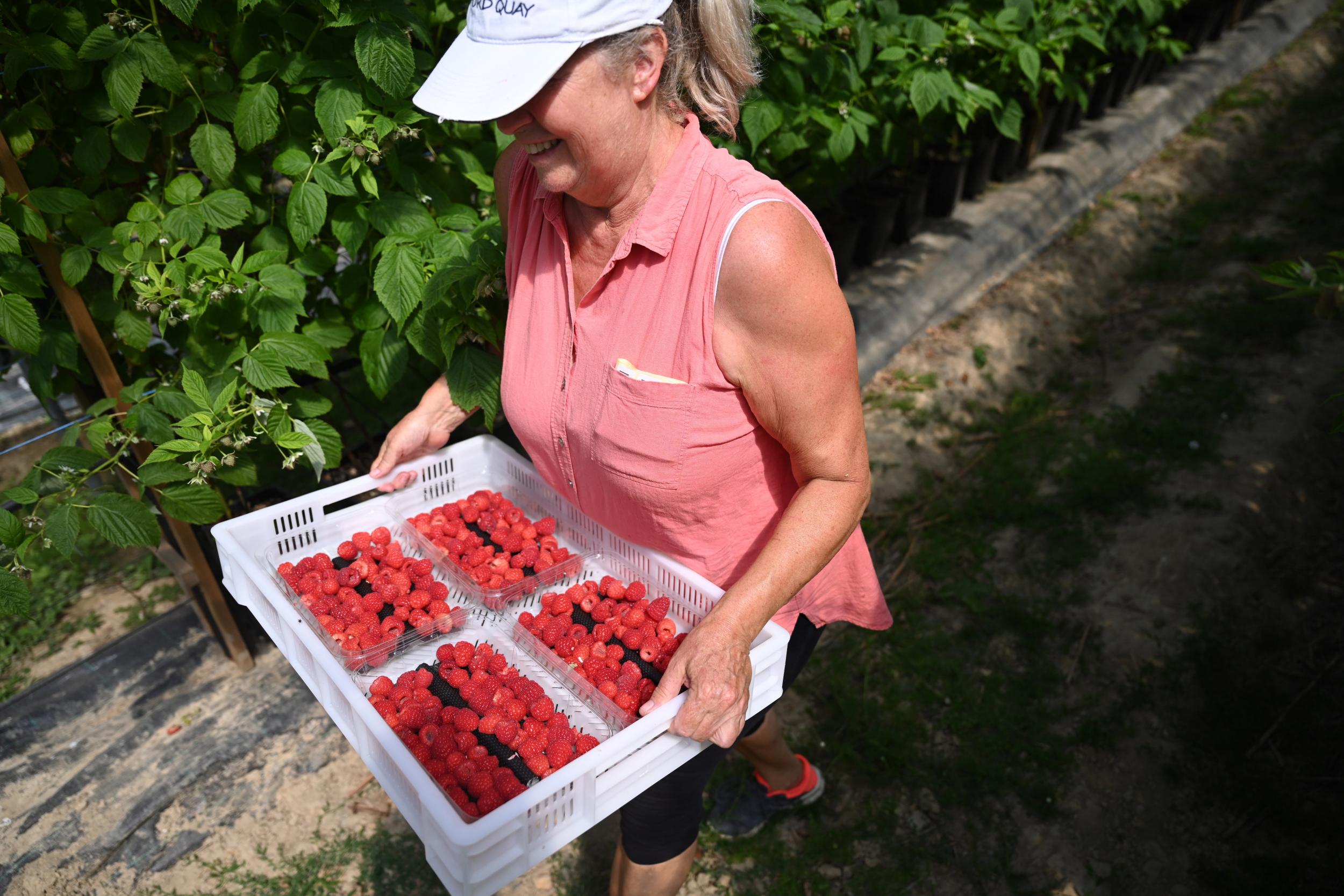
Collaborative neighbourhood food initiatives with a focus on local produce and sustainability have also prospered during the crisis. Roger has participated in one in south Birmingham for the last few years. Previously, shoppers ordered a range of local produce on-line and then went to the pub on a Thursday evening to collect it. During the crisis the system has altered.
The neighbourfood group has found a base in a community hall and distributes directly to people’s homes. Sherine, along with Khaled, hosts the scheme and has had to organise the new logistics but it has worked “massively well” she tells me. The number of weekly orders has grown five-fold. As to the future she says: “We’ve got a lot of customers who will stick with us. We have a good network of local producers so people have a good choice and the on-line web-site makes it all practical.”
It is not clear whether these initiatives will be sustained once the immediate emergency is over. Clearly, the dominance of the supermarkets in the food chain will continue. But if the government is keen to support small farmers, home-grown produce and local delivery then it needs to offer a set of development measures for farm shops and collaborative food distribution outlets as part of its small business support programme.
Snell Farm prides itself on being a good, ethical employer. It guarantees all its staff the national living wage, whether packing or picking. Pickers are paid piece rate. “A good picker can fill five trays and earn £120 in an eight-hour day. If a poor picker fills only three trays, we still pay them the national living wage. But I wouldn’t ask them back next year.”
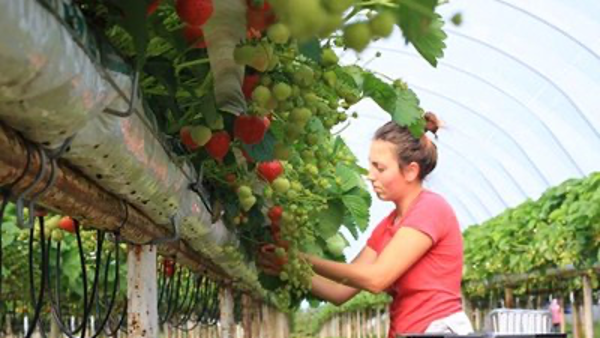
Christine’s main beef is with the supermarkets. “We’ve increased our labour costs by 6 per cent this year as the National Living Wage has gone up from £8.21 to £8.72 per hour. But the pressure is on our margins from the major supermarkets, the same as with the milk producers. They just want to keep down what they pay us. If people want decent standards for workers, if they want ethical standards, then they have to pay for it.” The Anderson report highlights the issue. In 2015 the minimum wage was £6.70. In April 2020 it was to £8.72, a rise of 30 per cent. That’s a significant increase in the wage bill. How can this be accommodated?
Steve is more positive. “Selling fruit to supermarkets means that we can shift huge volumes. Without them, we couldn’t do that.” Indeed, over the last 20 years, supermarket sales of strawberries have risen from 10,000 to 80,000 tonnes. He feels that they’re “pretty fair” on prices but sometimes when the estimated programmed quantities are wrong and the supermarkets have imported additional fruit from overseas, then prices do get squeezed.
In response to the issue of rising labour costs he focuses on raising farm productivity. “As an agronomist, I need to advise on how to grow better quality crops or achieve higher crop yields.” But he acknowledges that there are limits to productivity increases that can be achieved. “It’s a very labour-intensive industry. You can’t use robots to pick fruit yet, although robotics is the future.”
In February Home Secretary Priti Patel announced the government’s new points-based immigration system. It set out new rules and regulations for who can come to work in Britain. From 1 January 2021, entry will be dependent on a written job offer for “skilled” work, defined as jobs paying above a salary threshold of £25,600. The White Paper made clear that “we will end free movement and not implement a route for lower-skilled workers”. The White Paper’s response to the questions of who will undertake vital but low-paid jobs was simply that “UK businesses will need to adapt and adjust to the end of free movement”.
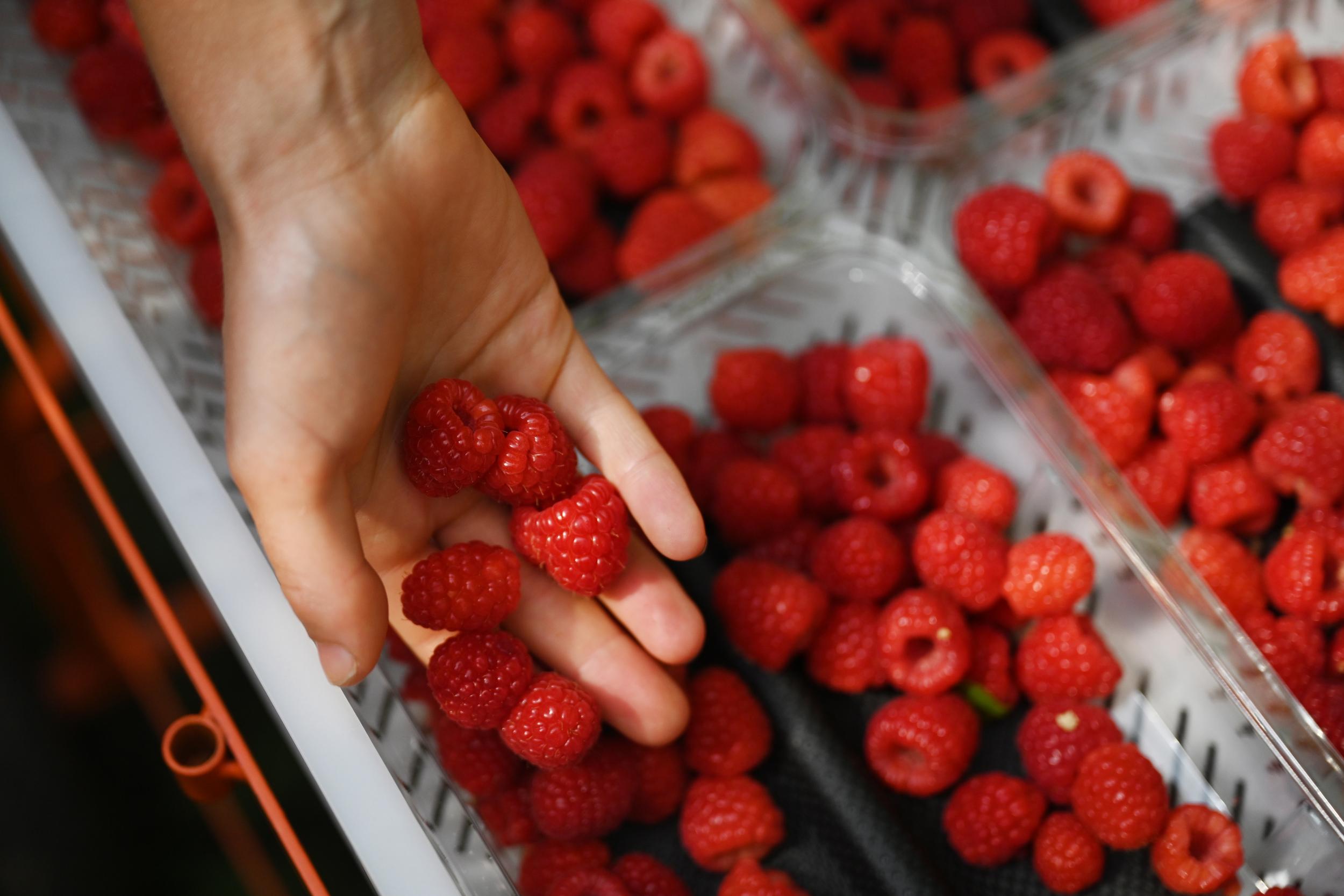
In response to the Migrant Advisory Committee’s Shortage Occupation List (SOL) consultation, on 26 June the NFU set out the farming industry’s labour needs. The NFU highlighted that with the government’s plans for a points-based system, it is absolutely crucial that agricultural roles are recognised within the SOL. No agricultural roles were included on that list in the detailed proposals that the Home Secretary published on 13 July.
Basically, key roles and tasks need to be on the list if labour supply from Eastern Europe is to be maintained. Across the sector there is broad agreement on this. “The evidence is clear,” says John. “The sector needs a seasonal worker scheme with adequate access to labour. Over the years, growers have tried to recruit UK staff but have singularly failed. Without a migrant labour supply these crops won’t be grown and picked.” This view is echoed by small farmers and large producers. Roger says: “This year has been a dry run for Brexit. If we can’t get enough staff with eight and a half million people furloughed, then next year there’ll be real trouble. To think they won’t be here is ridiculous.”
Martin is optimistic that the Covid crisis has helped people recognise the value of local produce. “I hope there’ll be a resurgence of English produce but we’ll need foreign labour to deliver it.” Christine expects that she’ll be relying almost entirely on seasonal foreign labour next year. “We’ll be back to square one. Unemployment in this area is less than 3 per cent. We’ll be looking to foreign labour.” The farm is part of the government’s Seasonal Worker Pilot Scheme. This was re-introduced last year. It is envisaged that the scheme will allow up to 10,000 agricultural workers to work in the UK each year, as compared to the estimated 80,000 that currently come. Christine is confident that the scheme will expand to meet the need. “It’ll sort itself out,” she says confidently. “The government will have to let people in if they want the fruit and veg to be picked.”
Steve is less sure. “I’ve no idea what will happen. Historically, the government has set up some sort of seasonal labour scheme. If it doesn’t, the industry will collapse. We’ve got a very good soft fruit industry but it can’t survive on home-grown labour. Unfortunately, that’s the way it is.” Whether it’s the agri-business producers or the small holders, migrant labour is the key. A climb-down through a huge expansion of the Seasonal Workers pilot programme seems the only way out for the government. David is very clear. “Migrant labour is essential. They’re the only people who’ll do it. It’s the same in Germany and Spain. We’ve spoken to MPs and lobbied with the NFU. We grow British produce but it’ll be picked and packed by non-British labour.”
The message to Priti Patel could not be clearer.
Jon Bloomfield is an honorary research fellow at the Institute of Local Government Studies, University of Birmingham, and author of ‘Our City: Migrants and the Making of Modern Birmingham’
Join our commenting forum
Join thought-provoking conversations, follow other Independent readers and see their replies
Comments